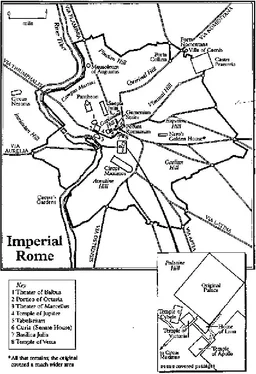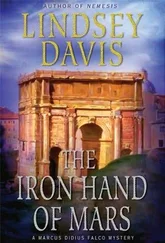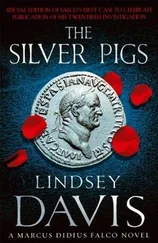Lindsey Davis - The course of Honor
Здесь есть возможность читать онлайн «Lindsey Davis - The course of Honor» весь текст электронной книги совершенно бесплатно (целиком полную версию без сокращений). В некоторых случаях можно слушать аудио, скачать через торрент в формате fb2 и присутствует краткое содержание. Жанр: История, на английском языке. Описание произведения, (предисловие) а так же отзывы посетителей доступны на портале библиотеки ЛибКат.
- Название:The course of Honor
- Автор:
- Жанр:
- Год:неизвестен
- ISBN:нет данных
- Рейтинг книги:5 / 5. Голосов: 1
-
Избранное:Добавить в избранное
- Отзывы:
-
Ваша оценка:
- 100
- 1
- 2
- 3
- 4
- 5
The course of Honor: краткое содержание, описание и аннотация
Предлагаем к чтению аннотацию, описание, краткое содержание или предисловие (зависит от того, что написал сам автор книги «The course of Honor»). Если вы не нашли необходимую информацию о книге — напишите в комментариях, мы постараемся отыскать её.
The course of Honor — читать онлайн бесплатно полную книгу (весь текст) целиком
Ниже представлен текст книги, разбитый по страницам. Система сохранения места последней прочитанной страницы, позволяет с удобством читать онлайн бесплатно книгу «The course of Honor», без необходимости каждый раз заново искать на чём Вы остановились. Поставьте закладку, и сможете в любой момент перейти на страницу, на которой закончили чтение.
Интервал:
Закладка:
He felt awkward. They both knew what his brave, clear-principled wife would have said about this.
Caenis reassured him gently, "The Flavians were good friends to me."
So he understood; his brother's mistress would do whatever had to be done. Caenis, the ex-secretary, would behave as she had been trained, with discretion and self-effacement. She would do it, moreover, despite anything his brother himself might say.
Flavius Sabinus leaned back his head and sighed. "This is very sad." Caenis said nothing. "Very sad," he repeated somberly.
He meant it. But for him, as for anyone who cared what happened to Rome, the important thing was a satisfactory resolution to the confusion, culminating in the best man taking charge. It was time to end Claudian vulgarity and scandal, time for Flavian discipline, hard work, and dedication to the public good. Time for Vespasian to be respectable again.
So although Flavius Sabinus honestly felt that what must happen to Caenis was tragic, though he liked her, and his late wife had liked her even more, he felt she had had a good run. His sadness was the type that must be dealt with staunchly, then put aside.
"I have suggested," he told her kindly, "that if you feel uncomfortable in Rome, you might be allowed to live on our grandmother's estate at Cosa."
Caenis drew a sharp breath. "And what does Caesar say to that?"
Sabinus shifted with embarrassment. "No answer yet."
Conflicting emotions battered her. "It is his favorite place!" she protested at last.
Vespasian's brother, who had known her as long as Vespasian himself, looked at her with a trace of Flavian sentiment. They were poor, but they paid their debts. She would be provided for with decent courtesy. And Cosa was a good long way away. "Well. Think about it. I feel sure he will offer, if that is what you would like. Of course, you are quite right about the place. But you," acknowledged the Prefect of the City unexpectedly, "have always been my brother's favorite person."
He was remembering the day when they discovered her, a scrawny fractious solitary girl amid all those incongruous perfume flasks and jars. He was trying not to remember the look he had seen that day upon Vespasian's face.
* * *
In the last days of Vitellius, Flavius Sabinus continually attempted to bring about a peaceful resolution to the conflict before Vespasian's two triumphant generals reached Rome.
Antonius Primus had encountered the last remnants of the Vitellian field army without bloodshed. They met at Narnia, sixty miles north of Rome. Caenis knew Narnia; though it was on a different highway, it lay only twenty miles from Reate. The Vitellians had marched down through the Umbrian Hills to meet Primus with standards aloft and banners fluttering—but they kept their swords sheathed. They paraded through the Narnia Gap, right to the point where Primus had drawn up his own men in closed ranks and full battle dress on either side of the road to Rome. In silence the Flavian army parted, then simply closed around the Vitellians until the two groups stood amalgamated into one. In many ways it was the most moving sight of the entire war.
Now Primus was waiting for Mucianus, who had been held up by a Dacian rebellion at their backs, to join him at Ocriculum. They were just forty-five miles, say two days' standard march, from Rome. Rome lay two days away from being sacked by Roman troops. After the destruction of Cremona, the point was not lost.
Vitellius at last agreed to abdicate. He left the Palace and made a suitable speech of renunciation in the Forum. Friends gathered at the house of Flavius Sabinus to congratulate him on the skill with which he had resolved the situation. It was all over—apparently.
However, while attempting to leave the Palatine, Vitellius found all the roads blocked with barricades. Not knowing what else to do, he returned to the Palace. His supporters rallied to him in the night. Rumors of the change quickly spread. As Prefect of the City, Sabinus gave an order confining all troops to barracks; the order was widely ignored. Aware that Mucianus and Primus were so near, he then assembled his family, including his nephew Domitian, and seized Capitol Hill, intending to make a stand until the Flavian generals arrived.
The Capitol, founded by the Roman Kings, then completed under the free Republic, had stood throughout the centuries, whatever else barbarians managed to assault. It had survived Rome's sack by marauding Gallic tribes. It had survived the invasion of Lars Porsenna in times so ancient, no one was certain any longer whether they were history or myth. The citadel had been destroyed once by accident, but never in war. The Flavians seemed pretty safe.
It was the night of 18 December. It was raining again, all night. In the pitch-black no one could tell friend from foe; watchwords went unrecognized or unheard. Even so, the cordon flung around the citadel by Vitellius was so loose that messages from Sabinus passed in and out easily. But then the next day Vitellian soldiers attacked on two sides; some climbed the Hundred Steps from the Clivus Capitolinus, others broke in on the opposite side by way of the Gemonian Steps. What had seemed casual now became desperate. Sabinus' men tore the roof tiles from the temples to hurl down on the attackers' heads and rooted up the statues to form frantic barriers at the gates. At some point during the confusion one side or the other started a fire, which raged through the houses on the lower slopes; then, while all Rome watched in horror, the flames leaped uphill toward the Temple of Jupiter.
The temple was the site for Rome's most solemn religious ceremonies. Here the Senate convened its first meeting of every year. From this temple the statues of Jupiter, Juno, and Minerva were carried down into the city and paraded during festivals. To this temple victorious generals brought home their trophies. It was packed with dedicated treasure. The roof was covered with tiles of gilded bronze, the doors were plated with gold, and the peristyle was hung with solemn edicts engraved on ancient bronze plaques. The temple had symbolized Rome's destiny for hundreds of years. It had given poets their famous epithet for the Golden Capitol. It was the heart of the Empire. The Temple of Jupiter on Capitol Hill in Rome was the center of the civilized world. On 19 December in the Year of the Four Emperors, the Temple of Jupiter burnt to the ground.
Many Flavian supporters were killed. Domitian hid in a caretaker's house, then disguised himself as an acolyte of the priests of Isis and escaped across the Tiber. The mother of one of his schoolfriends sheltered him, luckily outwitting his pursuers when they came to her house. Sabinus surrendered. He was dragged in chains before Vitellius. Vitellius came out onto the Palace steps apparently prepared to be lenient, but the mob screamed for blood. Sabinus was stabbed to death, his head sliced off, and his body cast onto the Gemonian Steps.
He had been placed in an impossible position, trying to negotiate with a slippery agent in an ungrateful city. Tragically, he misjudged both. The truest man in Rome, to him Rome gave a traitor's death.
* * *
Horrified, the army of Antonius Primus stirred. Without waiting any longer for Mucianus to join them, they forged straight down the Via Flaminia. They sped the full distance to Rome in a single day. Ambassadors from Vitellius and the Senate were roughly handled, though a deputation of Vestal Virgins was received courteously enough. The remaining Vitellians had no intention of giving way. So three columns of Flavian troops invaded the city. They entered by the Via Flaminia, along the banks of the Tiber, and through the Colline Gate on the Via Salaria—only a few yards from Caenis' house. While citizens sat out on their balconies like spectators at a triumph, cheering first one group, then the other, the two forces rampaged through the streets. The Flavians won—just. Vitellius was hauled from his hiding place in a janitor's kennel, beaten to death, then his body too deposited upon the Gemonian Steps, where Flavius Sabinus had been flung the day before. Vespasian's senior general, Licinius Mucianus, arrived in the nick of time to prevent Primus' men from looting the city. Rome shuddered, and was finally still.
Читать дальшеИнтервал:
Закладка:
Похожие книги на «The course of Honor»
Представляем Вашему вниманию похожие книги на «The course of Honor» списком для выбора. Мы отобрали схожую по названию и смыслу литературу в надежде предоставить читателям больше вариантов отыскать новые, интересные, ещё непрочитанные произведения.
Обсуждение, отзывы о книге «The course of Honor» и просто собственные мнения читателей. Оставьте ваши комментарии, напишите, что Вы думаете о произведении, его смысле или главных героях. Укажите что конкретно понравилось, а что нет, и почему Вы так считаете.












